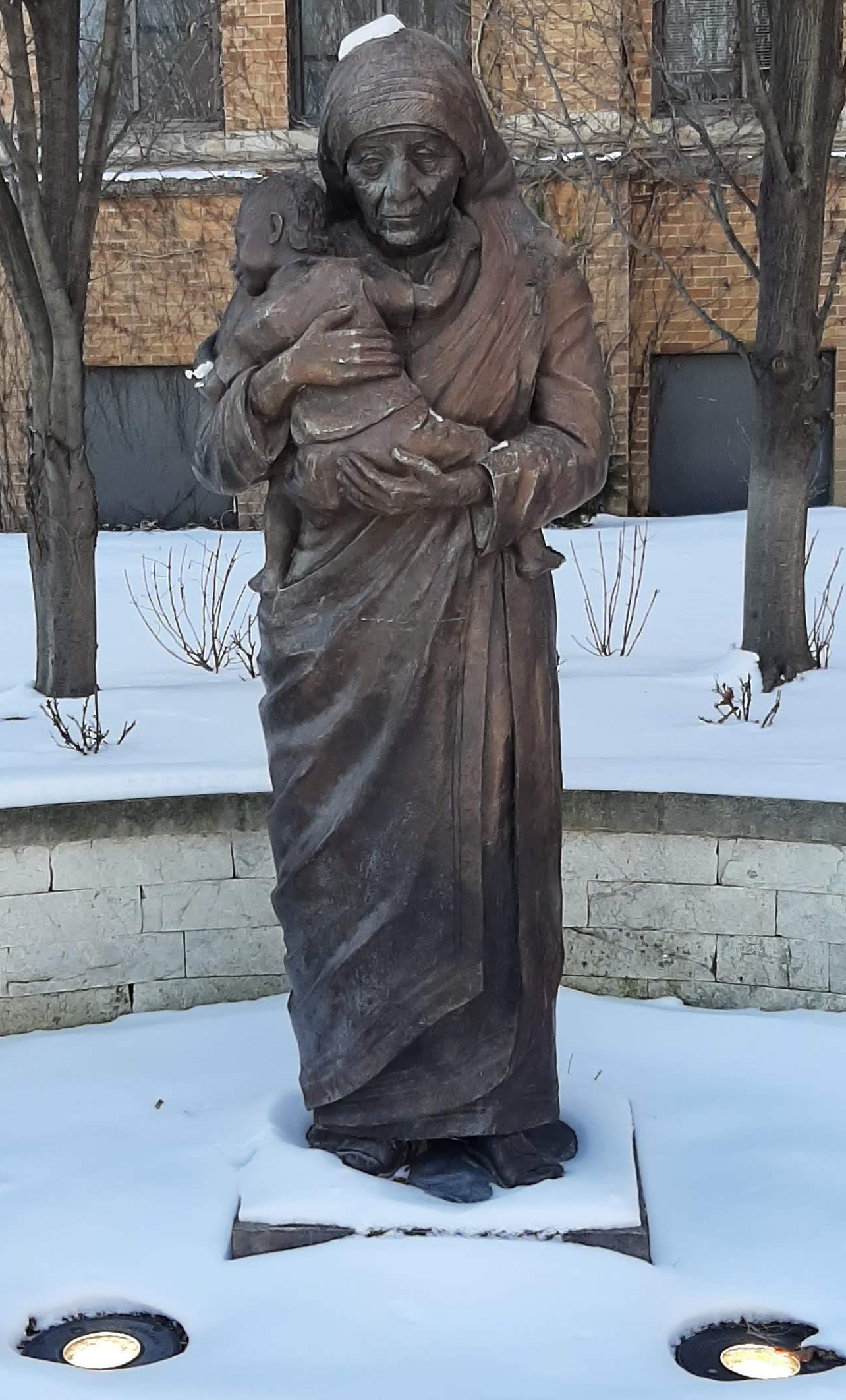Nestled in the middle of downtown Milwaukee, in the center of Marquette University campus, sits a statue of Mother Teresa looking meek and gentle, lovingly holding a child. The first time I saw this statute was in summer. It was a warm day, and I had a lovely time sitting next to Mother Teresa, lost in prayer and enjoying some lunch. Now back on Marquette’s campus in the winter, my experience with Mother Teresa is different.
On one of the coldest and windiest days of the year, I now stand in front of Mother Teresa, chilled even through my many layers. The irony of this does not escape me as I gaze upon Mother Teresa, ever holding her child, standing in her habit, in the snow. I reflect on my wonderful, warm summer days of eating next to her and spending time in prayer. How I wish to do the same now, but the thought of sitting in the snow is unappealing. After making the sign of the cross, I depart for warmer places.
While I longed for the peace and serenity that I had found with Mother Teresa earlier this year, this cold, frigid experience taught me much more. Here I was, standing by a memorial of a world-renowned figure, a great saint and a remarkable woman, distracted by the cold and irritated that my eager reunion with her was shortened by some cold and wind.
Mother Teresa lived her life in circumstances that most of us can only imagine in nightmares. She served the lepers, she picked out maggots from the bodies of the sick and dying, and she worked tirelessly, day after day in the slums of India.
When I think of Mother Teresa, one of the lessons I learn from her is that we need to be the best that we can be, even in our suffering and even in the suffering of others. How often in the midst of our suffering do we lash out at those around us? How often do we see a homeless person slowly crossing the road and get irritated that he is taking so long? How often do we lose patience with our children when we are frantically trying to finish something for work and they want to play?
Seeing Mother Teresa in the cold and snow was a powerful reminder that even in the challenges of life, we should still have the same meek, gentle and loving spirit that Mother Teresa carried with her to the sick and dying, the homeless and the criminals. Mother Teresa lived her own suffering, and she lived her suffering amidst the suffering of others. And she did it with love and compassion. It was irrelevant to Mother Teresa what the circumstances of her environment presented to her or what she felt like when she woke up. Regardless of the circumstances, Mother Teresa brought love to whomever she met, irrespective of their position or status in life.
It can be easy to get lost in our own suffering and challenges. It is hard to be our best selves in our own sufferings and challenges. It can also be easy to look at Mother Teresa’s life and marvel at the amazing things that she did, and forget to apply the bedrock principles of her life to our own. It is true that most of us are neither picking maggots out of a dying person’s body nor begging for our daily food. Nevertheless, we have our own challenges. If we look closely, we can probably find many ways that even in these minor challenges we could be doing better, with more meekness, gentleness and love. We could be talking more graciously to our spouse, and we could have more patience with our children. We could find more time for prayer, reflection and service.
Mother Teresa was meek, gentle and loving, in the warmth and in the cold, in the rain and in the dry. She was present for the suffering of those around her, regardless of her own. Let us not look at this motherly saint’s life and fail to see that the underlying principles of her life are what we also are called to live. Let us be meek, gentle and loving, in the summer and in the winter, in our happiness and in our suffering. Mother Teresa, please pray for us.

Andi Bochte

The statue of Mother Teresa at Marquette University. (Photo by Andi Bochte)
